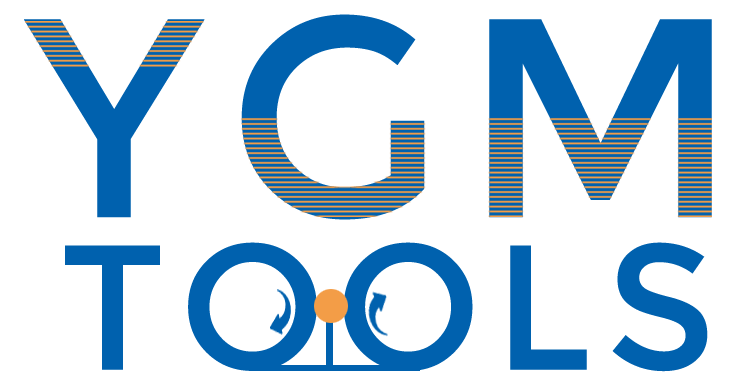
-
 Afrikaans
Afrikaans -
 Albanian
Albanian -
 Amharic
Amharic -
 Arabic
Arabic -
 Armenian
Armenian -
 Azerbaijani
Azerbaijani -
 Basque
Basque -
 Belarusian
Belarusian -
 Bengali
Bengali -
 Bosnian
Bosnian -
 Bulgarian
Bulgarian -
 Catalan
Catalan -
 Cebuano
Cebuano -
 Corsican
Corsican -
 Croatian
Croatian -
 Czech
Czech -
 Danish
Danish -
 Dutch
Dutch -
 English
English -
 Esperanto
Esperanto -
 Estonian
Estonian -
 Finnish
Finnish -
 French
French -
 Frisian
Frisian -
 Galician
Galician -
 Georgian
Georgian -
 German
German -
 Greek
Greek -
 Gujarati
Gujarati -
 Haitian Creole
Haitian Creole -
 hausa
hausa -
 hawaiian
hawaiian -
 Hebrew
Hebrew -
 Hindi
Hindi -
 Miao
Miao -
 Hungarian
Hungarian -
 Icelandic
Icelandic -
 igbo
igbo -
 Indonesian
Indonesian -
 irish
irish -
 Italian
Italian -
 Japanese
Japanese -
 Javanese
Javanese -
 Kannada
Kannada -
 kazakh
kazakh -
 Khmer
Khmer -
 Rwandese
Rwandese -
 Korean
Korean -
 Kurdish
Kurdish -
 Kyrgyz
Kyrgyz -
 Lao
Lao -
 Latin
Latin -
 Latvian
Latvian -
 Lithuanian
Lithuanian -
 Luxembourgish
Luxembourgish -
 Macedonian
Macedonian -
 Malgashi
Malgashi -
 Malay
Malay -
 Malayalam
Malayalam -
 Maltese
Maltese -
 Maori
Maori -
 Marathi
Marathi -
 Mongolian
Mongolian -
 Myanmar
Myanmar -
 Nepali
Nepali -
 Norwegian
Norwegian -
 Norwegian
Norwegian -
 Occitan
Occitan -
 Pashto
Pashto -
 Persian
Persian -
 Polish
Polish -
 Portuguese
Portuguese -
 Punjabi
Punjabi -
 Romanian
Romanian -
 Russian
Russian -
 Samoan
Samoan -
 Scottish Gaelic
Scottish Gaelic -
 Serbian
Serbian -
 Sesotho
Sesotho -
 Shona
Shona -
 Sindhi
Sindhi -
 Sinhala
Sinhala -
 Slovak
Slovak -
 Slovenian
Slovenian -
 Somali
Somali -
 Spanish
Spanish -
 Sundanese
Sundanese -
 Swahili
Swahili -
 Swedish
Swedish -
 Tagalog
Tagalog -
 Tajik
Tajik -
 Tamil
Tamil -
 Tatar
Tatar -
 Telugu
Telugu -
 Thai
Thai -
 Turkish
Turkish -
 Turkmen
Turkmen -
 Ukrainian
Ukrainian -
 Urdu
Urdu -
 Uighur
Uighur -
 Uzbek
Uzbek -
 Vietnamese
Vietnamese -
 Welsh
Welsh -
 Bantu
Bantu -
 Yiddish
Yiddish -
 Yoruba
Yoruba -
 Zulu
Zulu
High-Precision Bolt Thread Rolling Machines for Efficient Manufacturing Solutions
Understanding Bolt Thread Rolling Machines A Key to Efficient Manufacturing
Bolt thread rolling machines are essential pieces of equipment in the manufacturing industry, especially in the production of fasteners. These machines are designed to create precise external threads on metal rods, which are then used for manufacturing bolts, screws, and other threaded components. This article delves into the functionality, significance, and advancements surrounding bolt thread rolling machines.
The Mechanism of Thread Rolling
Thread rolling is a cold forming process that involves the use of two or more rotating dies to deform a metal rod into a threaded configuration. Unlike traditional cutting methods, which remove material to create threads, thread rolling compresses the material, resulting in a denser and stronger product. The process starts with a cylindrical blank that is fed into the rolling machine. As the dies rotate and come together, they apply pressure on the blank, forming the threads in a swift and efficient manner.
The primary advantages of this process include the enhancement of the mechanical properties of the material, improved surface finish, and a reduction in production time. Furthermore, thread rolling can create threads with precise dimensions that meet stringent industry standards, making it a preferred method for producing high-quality fasteners.
Types of Bolt Thread Rolling Machines
There are several types of bolt thread rolling machines, each suited to different manufacturing needs
1. Flat Die Rolling Machines These machines use flat dies to create threads on cylindrical workpieces. They are ideal for producing large volumes of threaded products and are commonly used in mass production environments.
2. Circular Die Rolling Machines These machines utilize circular dies for the thread rolling process. They are capable of producing intricate thread designs and are often employed for specialized fasteners.
3. Multiple Spindle Rolling Machines Designed for high-speed production, these machines can roll multiple components simultaneously. This capability dramatically increases output, making them suitable for high-demand industries.
bolt thread rolling machine products

Each type of machine has its own set of features, advantages, and applications, enabling manufacturers to select the equipment that best fits their production requirements.
Applications of Bolt Thread Rolling Machines
Bolt thread rolling machines are used across a myriad of industries, including automotive, aerospace, construction, and electronics. In the automotive industry, they produce fasteners that meet the rigorous quality and safety standards needed for vehicle assembly. In aerospace, where precision and reliability are paramount, rolled threads ensure that components can withstand extreme stresses.
The construction industry also relies heavily on bolt thread rolling machines for producing anchors, bolts, and screws essential for building structures. Additionally, in the electronics sector, these machines create small but vital components used in various devices.
Advancements and Innovations
With the rise of Industry 4.0, bolt thread rolling machines are becoming increasingly sophisticated. Manufacturers are incorporating advanced technologies such as CNC (Computer Numerical Control) systems that allow for greater precision and automation. CNC thread rolling machines can easily switch between different thread sizes and designs without extensive manual intervention, significantly reducing setup times and increasing flexibility.
Furthermore, the integration of IoT (Internet of Things) technology enables manufacturers to monitor machine performance in real-time. This capability allows for predictive maintenance, which minimizes downtime and enhances productivity. By analyzing data collected from machines, manufacturers can improve processes and reduce waste, leading to more sustainable manufacturing practices.
Conclusion
Bolt thread rolling machines are a cornerstone of modern manufacturing, driving efficiency in the production of threaded fasteners. Their ability to produce high-strength, precise threads makes them indispensable across various industries. As technology continues to evolve, these machines will become even more advanced, enabling manufacturers to meet the growing demands of the market while maintaining high quality and sustainability standards. The future of bolt thread rolling continues to shine, shaping the foundations of countless applications in our daily lives.
